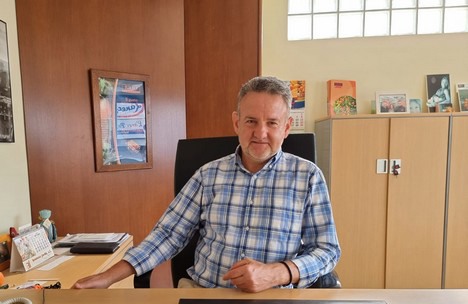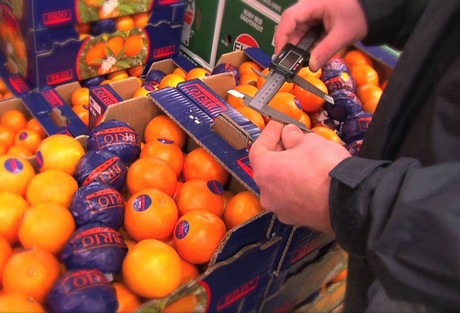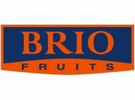The Oronules clementine campaign is starting in Valencia with some delay, but with less pressure in the market from overseas fruit compared to the same time last year.

"This year we have started directly with the Oronules variety. In previous years, we started the campaign with the Clemenrubi, but this year the sizes - which have been smaller in general for all clementine varieties in the first part of the campaign - have actually been too small for this variety, and juice levels have been low, too, due to the effect of the heat," says Abel Alarcón, manager of Agrios Selectos, better known for its Brio Fruits brand. "Besides, this variety tends to clash more with the end of the southern hemisphere mandarin campaign, so it seems that less and less people are betting on it in general."
According to the manager of this company based in Real de Gandía, Valencia, "it seems that the market could be a bit 'cleaner' of overseas fruit this year, and this is allowing us to start the campaign with greater optimism. There is not as much supply as other years and, at the same time, it seems that mandarin and clementine consumption has started to pick up in September. There are still Orri and Nadorcott mandarins from the southern hemisphere, but in smaller quantities, given that the demand has been good."
"As for oranges, the prospect is that there won't be as much overlap as last year with the fruit from South Africa, as this year is the first in which the European Commission has made cold treatment a compulsory requirement on arrival at European ports to avoid pests, and this has made those exports more difficult and expensive. I hope that in the future this could be extended to other citrus species, as the risk of the entry of pests is still there. Such is the example of the South African cotonet, which is taking a huge toll on clementines, and even though it has already been somewhat contained in the areas already affected, it continues to expand and to cause a lot of concern in the sector, given the damage it causes to the production and the rising cost of the phytosanitary treatments needed to fight it," says Abel Alarcón.

At the moment, according to the producer and exporter, clementines are reaching more expensive prices at origin than at the same time last year. "We must take into account that costs are also higher in all links of the chain. Imported fruit is also more expensive, but there are fewer volumes, both from overseas and in Spain, with a drop of more than 10% compared to last season. This is a consequence of both the impact of the weather conditions and of the abandonment of land by smaller growers who are unable to cope with the increased production costs. For now, large sizes are scarce in all varieties and all citrus species, but the rains forecast for this month could have a favorable effect on the later varieties."
The Valencian company's clementine and mandarin volumes continue to grow, gaining ground on oranges. The firm has also continued to bet on pigmented orange varieties such as the Sanguinelli and Cara Cara. Its main markets are in Germany, France, Belgium, Italy, Poland and, occasionally, overseas. "Since last year, we have been gaining presence in supermarkets in Spain, where we expect to continue to grow in the coming years."
"We are also investing in putting more solar panels on the roof of our warehouse. We had already been generating electricity with solar energy since 2009, but now, as the panels are more efficient, we are going to replace them with new ones. We are also going to invest in new infrared cameras that are more powerful than the ones we already have and will allow us to better discard fruit with incipient rot," says Abel Alarcón.
Brio Fruits has been present at Fruit Attraction as an exhibitor in Hall 3, stand 3E10G.
 For more information:
For more information:
Abel Alarcón
Agrios Selectos S.L. (Brio Fruits)
T: +34 962 868 000
brio@brio.es
www.brio.es
